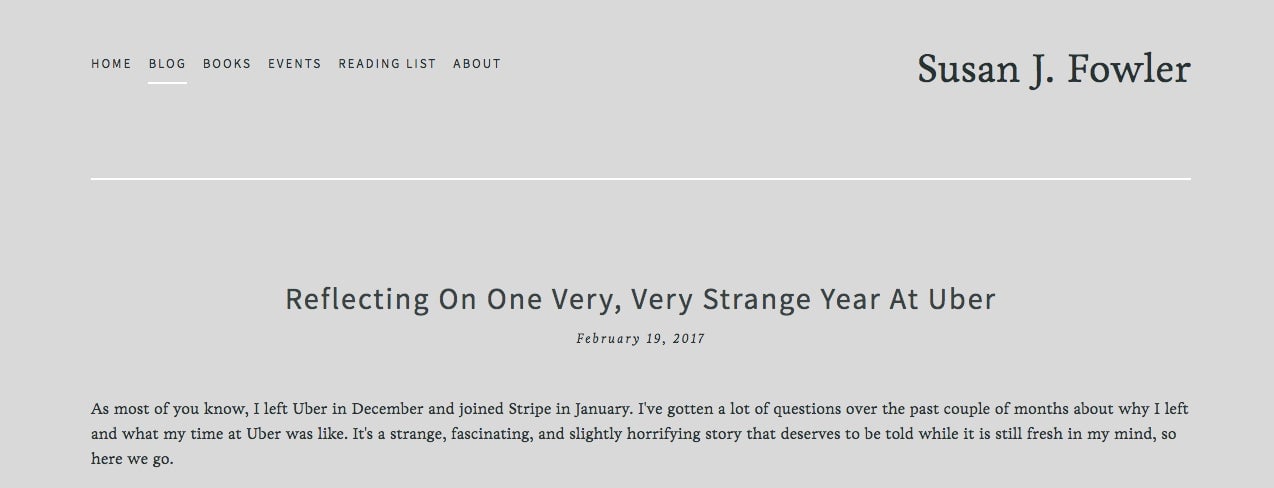The downfall of Uber’s Travis Kalanick started with a single blog post
There’s almost no way Susan Fowler could have expected her Feb. 19 blog post describing the rampant sexism at Uber to lead to the departure of CEO Travis Kalanick.


There’s almost no way Susan Fowler could have expected her Feb. 19 blog post describing the rampant sexism at Uber to lead to the departure of CEO Travis Kalanick.
But she may have hoped it would.
Fowler described, with precise and revealing detail, her experiences of sexual harassment and the culture that allowed it to fester. Her credibility in the tech world—she’s the author of some incredibly wonky engineering books—gave her voice authority, and her post was read by Kalanick. He took it seriously enough that the company soon commissioned an investigation, led by former US attorney general Eric Holder, into her allegations.
Uber already had a reputation for its aggressive, rules-flouting behavior, but all that followed—Kalanick berating a driver, revelations of trips to Korean escort bars, the purging of employees connected to allegations of harassment, and other suspect activities—bolstered Fowler’s account, and drove the narrative that something was deeply and seriously wrong at Uber.
To be clear, the sexist climate at Uber was only one of the factors that contributed to Kalanick’s ouster. There’s also the damaging lawsuit over intellectual property, revelations about using software (paywall) to evade law enforcement, and a #deleteUber movement that cost the company an estimated 200,000 users emerged after Kalanick was invited to join US president Donald Trump’s economic advisory council.
It says something about Kalanick’s influence over Uber’s board and investors that he held on as long as he did. It also means that despite the repulsiveness of the company’s culture, and the power of Fowler’s account, it probably alone wasn’t enough to force him out.
That should be sobering for anyone celebrating Kalanick’s departure as a turning point in how the business world deals with sexist behavior. High-profile incidents at Uber and Fox News (and smaller-scale ones like at Thinx) are extreme examples, where investors and boards were all but forced to take action, and only after lengthy and very public airings of the allegations. But harassment occurs at all sorts of workplaces, with as many as 85% of women experiencing some form of it, according to a 2015 study by the Equal Employment Opportunity Commission. And it should be noted that Fowler wrote her post after leaving Uber—she didn’t risk her job.
Fowler’s post was a catalyst due to Uber’s unique circumstances, but it shows that raising a voice can make a difference, and change is possible. There’s a growing intolerance in mainstream culture for sexism and misbehavior, and once it sticks to a company’s reputation, it’s bad for business.
Theres no other company quite like Uber, and Fowler’s post may ensure that stays true.